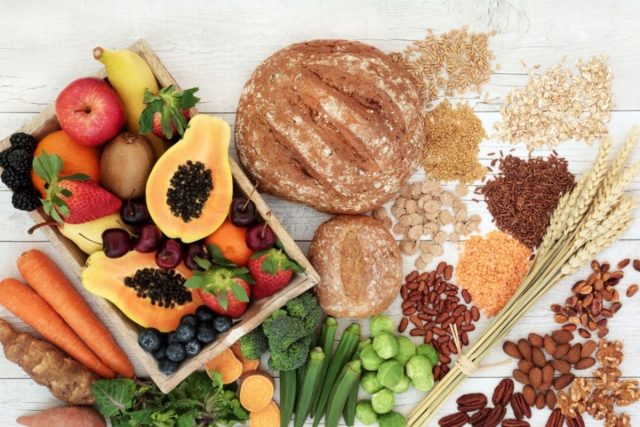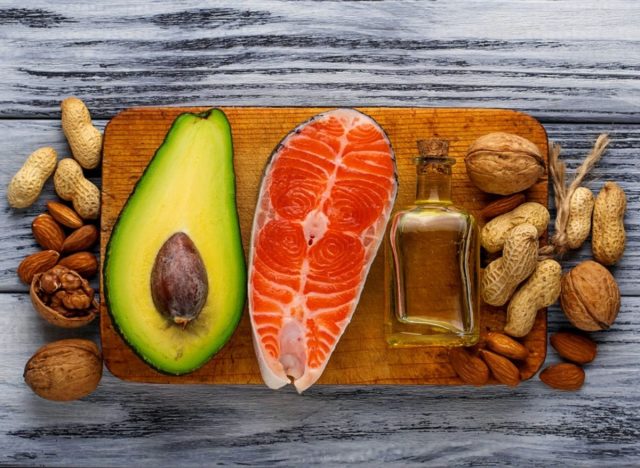You have likely heard the saying that breakfast is the most important meal of the day, and while there are varying opinions on this statement, your breakfast habits no doubt have an impact on your body. When it comes to blood sugar, there are so many factors involved in managing this metric, and what you eat (or don’t eat) is one of the biggest. While those with diabetes should be especially mindful of managing their blood sugar, it is in everyone’s best interests to avoid habits that make it harder for our bodies to maintain healthy blood glucose levels. Here are the four worst breakfast habits for your blood sugar.


Fiber is a valuable nutrient that serves many functions, from improving digestive regularity and blood cholesterol to increasing satiety and slowing the release of carbohydrates into your bloodstream. When you eat a low fiber, carb-dense breakfast, like white toast with jam, the carbohydrate in your meal will reach your bloodstream quicker than if you had equal carbs with higher fiber content. This quick surge of carbohydrates can lead to a spike and plummet in blood sugar following the meal, which may impact energy levels and appetite.
For someone without diabetes, the body is well equipped with insulin to aid in this process; however, over time you may wear down your body’s ability to respond as efficiently to these surges of sugar. To ease the response required from your pancreas, try including fiber in your breakfast. A good rule of thumb is to have at least 1 gram of fiber per 5 grams of carbohydrate. You can do this simple math when looking at a nutrition facts panel, and when in doubt, swap your white bread for whole grain, add fruit to your meal, and add other fiber-dense foods to your breakfast, like oatmeal, buckwheat, high-fiber cereal, and vegetables.


While there may be some varying opinions on how important it is to eat breakfast, there are some physiological responses to skipping this meal. In fact, one study notes for individuals with type 1 diabetes, skipping breakfast was associated with higher mean blood sugar concentrations and lower odds of good glycemic control. This is especially concerning as poor glycemic control in diabetics increases the risk of heart disease, nerve, and kidney damage, in addition to impairment of other organs and tissues.
For those without diabetes, skipping breakfast may have an opposing impact. During prolonged fasting, like what you may experience if you skip breakfast, your blood sugar levels are likely to dip. For some, this change may not be noticeable; for others, lower blood sugar may lead to hypoglycemia symptoms, like a fast heartbeat, shaking, sweating, irritability, and dizziness.
READ RELATED: 7 Bizarre Rules McDonald's Employees Have to Follow
If feeling pressed for time has led you to skip breakfast, try simplifying your routine or preparing your breakfast the night before. For example, try a low-sugar protein bar with a piece of fruit or Greek yogurt topped with berries and nuts as two quick breakfast options. If you have time to prep the night before, make a serving of overnight oats with nut butter and fruit, and simply add a hardboiled egg in the morning for a no-fuss breakfast.


A balanced meal is one that contains carbohydrates, protein, fiber, fat, and produce. Without all of these components present at a meal, you will be limiting your vitamin and mineral intake, and you could be setting yourself up for a spike in blood sugar.
It takes a lot of work for your body to break down and digest protein, and when you consume this nutrient alongside carbohydrates, it can also slow the release of carbohydrates into your bloodstream. For many, a quick breakfast ends up being a granola bar, a single piece of fruit, or a sugary coffee drink. While all of these can be part of a balanced breakfast, they are best served alongside protein. Crumble your granola bar over cottage cheese, add nuts to your fruit, and swap the sugary creamer in your coffee for a few splashes of a pre-made protein shake to incorporate protein into your breakfast.


Similar to protein, fat also slows the digestion of carbohydrates, helping to reduce the likelihood of blood sugar spikes. Additionally, it is a satiating nutrient, which means you will feel fuller for longer after your meal. Because of the satiating benefits of fat, well-balanced meals including this nutrient may curb snacking and meal sizes to further aid in blood sugar management.
Healthy fats, like the unsaturated fat found in avocado, nuts, and nut butter can reduce inflammation in the body and often don’t require much prep before incorporating them into a meal. For example, add half of an avocado to your whole grain toast instead of jam, add nut butter to your apple for a protein and fat boost, and sprinkle your overnight oats with chia and hemp seeds for a great source of satiating and anti-inflammatory omega-3 fats.
Source:









